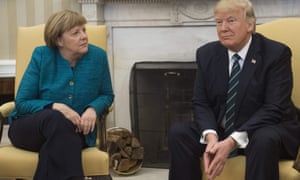NOI CU WEST UL , VOI CU RESTUL! general lebed BIO- Google Search
general lebed - Google Search: SEARCH: JOANNA BODOR
'via Blog this'
General Alexander Lebed
Russian general who applied military toughness to politics
General Alexander Lebed, who has died aged 52 in a helicopter crash, was a gruff soldier whose popularity and political ambitions raised fears of Bonapartism taking hold in the chaos of post- communist Russia in the mid-1990s. He made his name as a Kremlin fixer, negotiating an end to the Russian-ethnic Romanian conflict in Moldova in 1992 and, more importantly, saving Boris Yeltsin in summer 1996, when the first war in Chechnya jeopardised the sick president's re-election bid.
By then, Lebed had developed political ambitions of his own, and ran against Yeltsin and the communist challenger Gennadiy Zyuganov, taking 15% of the vote in the first round of the 1996 presidential contest. He was then co-opted by the murky figures running Yeltsin's Kremlin, threw his weight behind the president and became head of the national security council. He had been stripped of his military rank in 1995 in a bitter row with the hardline defence minister Pavel Grachev, whom he now promptly had sacked.
Lebed had a shrewd and flexible mind, which proved extremely useful to Yeltsin. The president needed a way out of the disastrous Chechen campaign after the separatists had routed the Russians and captured Grozny, the Chechen capital, in August 1996 - just as Yeltsin was being inaugurated for his second term.
Lebed mitigated Moscow's humiliation, and negotiated a settlement that added a dash of honour to the Russian withdrawal, an achievement which subsequently gained him no plaudits among the KGB veterans and military men now running Russia. "We have to read our own history," Lebed declared. "In 100 years, the Russians could not defeat the Chechens. Diplomacy won. That's how we have to act now."
But, after 1996, his face did not fit among the cast of rogues and villains who dominated Yeltsin's last years in power. And as soon as he took office in 1999, Yeltsin's successor, Vladimir Putin, launched the second Chechen war to undo Lebed's peace.
Democracy or liberty were never Lebed's guiding lights. "I'm not a liberal, I'm a general," he would brag. His claimed focus was fighting corruption, acting tough, and imposing the rule of law through no-nonsense author-itarianism. Uncomfortable among Moscow's sleek movers and shakers, he decamped to Krasnoyarsk, in Siberia, to build a new power base. In 1998, he became governor of this huge territory, a post he held until his death.
For 25 years, Lebed was a Red army officer. He served with distinction in Afghanistan, and put his Moscow-based paratroop regiment behind Yeltsin in the crucial days of August 1991, when communist reactionaries and the KGB mounted their disastrous coup attempt against Mikhail Gorbachev.
He was born into crushing poverty in the southern Russian town of Novocherkassk, historically a Cossack stronghold of militarists and rebels. He was reared in a converted stable by his carpenter father, who spent five years in Stalin's penal battalions for being late for work.
As a youngster in 1962, Lebed witnessed soldiers and tanks firing on demonstrators who rose up in the Novo- cherkassk food riots and demanded the overthrow of Nikita Khrushchev. At least 23 civilians, including children, were shot dead in one of the few eruptions of civil disobedience in communist Russia. The corpses were spirited away, and news of the uprising suppressed until the era of Gorbachev's glasnost.
Lebed worked in factories and warehouses in the Novocherkassk area after leaving school, while dreaming of becoming an air force pilot. He was rejected by the air force and, at the age of 18, enlisted for paratrooper training in Ryazan.
After long years of boredom and restlessness there, he left the Soviet Union for the first time - at the age of 31 - to land at Bagram air base outside Kabul, now the main base for British and American troops. He was in Afghanistan for a year, a captain commanding a battalion, before moving to the Frunze military academy in Moscow for three years, and being promoted to colonel, commanding the elite 106th guards airborne division.
Lebed's military career embraced the key flashpoints of late 20th-century Russia. The experience turned him into a trenchant critic of the top brass, and pushed him further into an increasingly political career. His abrasive talents were unlikely ever to propel him to the top of a democratic Russia, while his stubborn, rebellious streak made him a liability as a team-player.
He leaves his wife Inna, and two sons and a daughter.
·Alexander Ivanovich Lebed, soldier and politician, born April 20 1950; died April 28 2002
Since you’re here …
… we’ve got a small favour to ask. More people are reading the Guardian than ever, but far fewer are paying for it. Advertising revenues across the media are falling fast. And unlike many news organisations, we haven’t put up a paywall – we want to keep our journalism as open as we can. So you can see why we need to ask for your help. The Guardian’s independent, investigative journalism takes a lot of time, money and hard work to produce. But we do it because we believe our perspective matters – because it might well be your perspective, too.
If everyone who reads our reporting, who likes it, helps to support it, our future would be much more secure.
'via Blog this'








Comments
Post a Comment